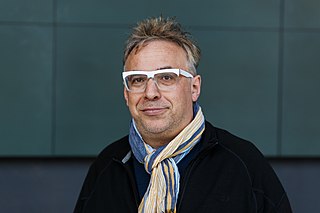Цитата Джона Фиске
Реализм — это вопрос не какой-либо верности эмпирической реальности, а дискурсивных условностей, посредством которых и для которых конструируется ощущение реальности.
Связанные цитаты
В самом фундаментальном смысле казнь — это систематический способ обнажить реальность и воздействовать на нее. Большинство компаний не очень хорошо смотрят в лицо реальности. ... Реализм лежит в основе исполнения, но во многих организациях полно людей, пытающихся избежать или затушевать реальность. Почему? Это делает жизнь неудобной.
Нельзя быть наивным в отношении зла. Вы не можете наивно относиться к реальности того, что есть люди и человеческие ситуации, которые полностью отождествляются с темной стороной реальности. Они злонамеренны. Реализм учит вас устанавливать соответствующие границы, чтобы люди не могли причинить больше зла, чем это возможно. Но это не значит, что вы делаете им зло в ответ.
Западный подход к реальности в основном основан на теории, а теория начинается с отрицания реальности — с разговоров о реальности, обхода реальности, улавливания всего, что привлекает наше чувство-разум, и абстрагирования этого от самой реальности. Таким образом, философия начинает с того, что говорит, что внешний мир не есть основной факт, что его существование может быть подвергнуто сомнению и что всякое положение, в котором утверждается реальность внешнего мира, есть не очевидное положение, а положение, требующее расчленения, расчленения и расчленения. проанализировано. Это значит сознательно стоять в стороне и пытаться выровнять круг.
На философском уровне и буддизм, и современная наука разделяют глубокое недоверие к любому понятию абсолюта, независимо от того, концептуализируется ли он как трансцендентное существо, как вечный, неизменный принцип, такой как душа, или как фундаментальный субстрат реальности. ... В буддийском исследовании реальности, по крайней мере в принципе, эмпирические данные должны преобладать над авторитетом священных писаний, независимо от того, насколько глубоко почитаемым может быть священное писание.
Люди все время спрашивают меня: «Тебе надоело реалити-шоу?» В конце концов, это может повлиять на мою карьеру в том смысле, что чем больше будет реалити-шоу, тем меньше будет драм, написанных по сценарию, но я никогда не смогу от них избавиться. Я начал с «Поп-звезд», реалити-шоу талантов. Я уважаю их.
Когда я использую термин «сложный реализм», я имею в виду, что писатель должен быть реалистом, всегда реалистом, но не реалистом в том смысле, в каком мы обычно используем этот термин в литературе. Если реальность сегодня отличается от реальности 30 лет назад, мы не можем продолжать описывать реальность так же, как мы это делали 30 лет назад.
... то, что подделывается [путем компьютеризации создания изображений], конечно, не реальность, а фотографическая реальность, реальность, увиденная объективом камеры. Другими словами, компьютерная графика достигла (почти) не реализма, а только фотореализма — способности подделывать не наше перцептивное и телесное переживание реальности, а только ее фотографическое изображение.








































